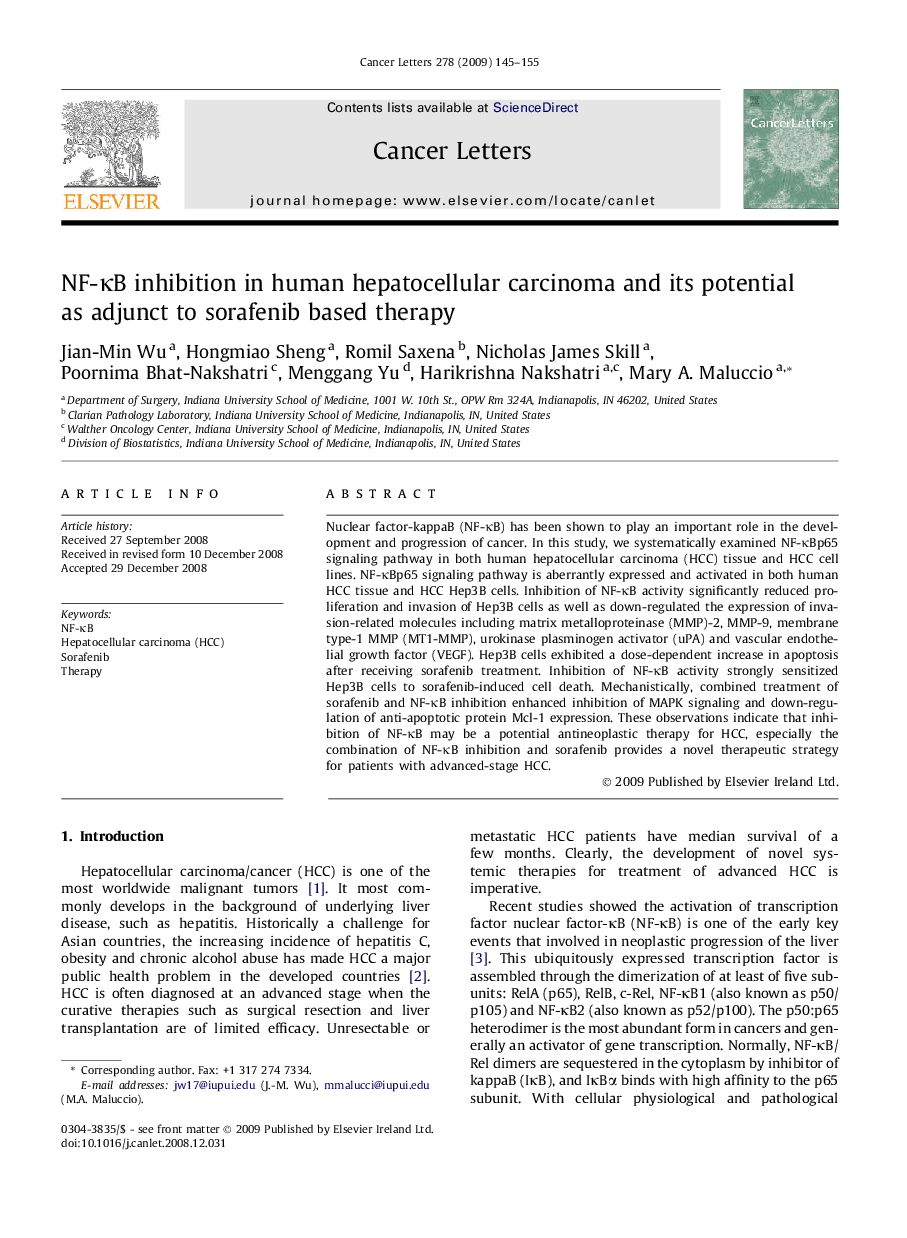| کد مقاله | کد نشریه | سال انتشار | مقاله انگلیسی | نسخه تمام متن |
|---|---|---|---|---|
| 2114422 | 1084537 | 2009 | 11 صفحه PDF | دانلود رایگان |

Nuclear factor-kappaB (NF-κB) has been shown to play an important role in the development and progression of cancer. In this study, we systematically examined NF-κBp65 signaling pathway in both human hepatocellular carcinoma (HCC) tissue and HCC cell lines. NF-κBp65 signaling pathway is aberrantly expressed and activated in both human HCC tissue and HCC Hep3B cells. Inhibition of NF-κB activity significantly reduced proliferation and invasion of Hep3B cells as well as down-regulated the expression of invasion-related molecules including matrix metalloproteinase (MMP)-2, MMP-9, membrane type-1 MMP (MT1-MMP), urokinase plasminogen activator (uPA) and vascular endothelial growth factor (VEGF). Hep3B cells exhibited a dose-dependent increase in apoptosis after receiving sorafenib treatment. Inhibition of NF-κB activity strongly sensitized Hep3B cells to sorafenib-induced cell death. Mechanistically, combined treatment of sorafenib and NF-κB inhibition enhanced inhibition of MAPK signaling and down-regulation of anti-apoptotic protein Mcl-1 expression. These observations indicate that inhibition of NF-κB may be a potential antineoplastic therapy for HCC, especially the combination of NF-κB inhibition and sorafenib provides a novel therapeutic strategy for patients with advanced-stage HCC.
Journal: Cancer Letters - Volume 278, Issue 2, 18 June 2009, Pages 145–155